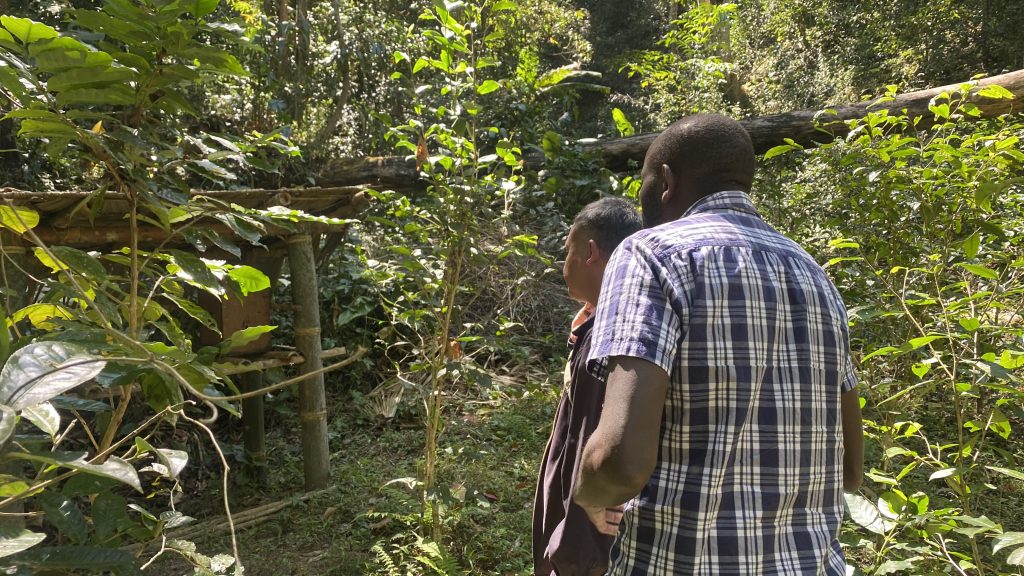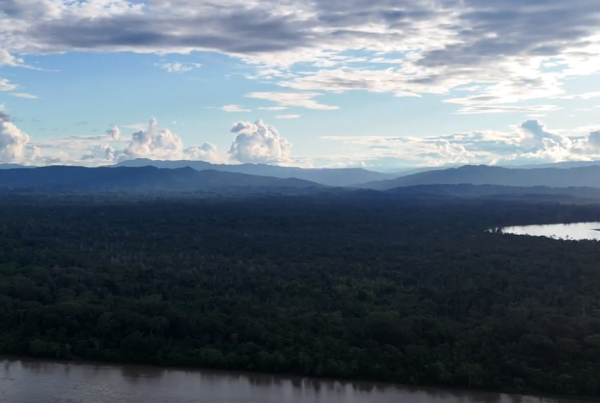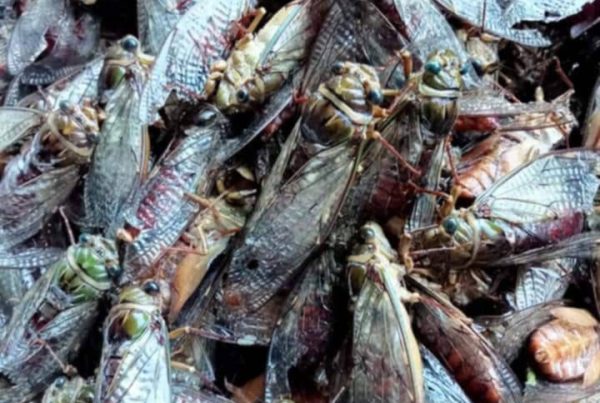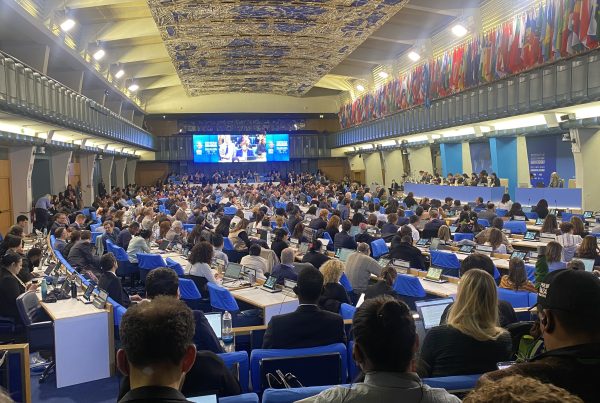The first in-person meeting of the Transformative Pathways consortium took place in Thailand in February 2023. Around 50 participants were present, including project partners, community members and Thai officials.
The first day was focused on partner presentations which explored their visions for how this project could support their target communities and countries in diverse ways. The partners who started the project in June 2022 also gave an update on the work they had already achieved. As this project will run for six years (until 2028), this meeting was a key space for partners to set out their goals for the next few years.
One of the other key themes was global policy work, particularly looking at the outcomes of the Kunming-Montreal Global Biodiversity Framework that was finalised at COP15 in Montreal in December 2022. The partners highlighted the opportunities to get involved in policy processes, especially indicator development, engagement in national policies and the local implementation of these policies and laws.
At the end of each meeting day, all participants took part in a sharing and reflections circle where they were able to voice reflections and key takeaways. This was a powerful tool in terms of allowing all voices to be heard and for alignment and group cohesion.
Type: Blog
Region: Global
Country: Thailand
Theme: Community-led conservation; International Processes; Land and resource rights; Sustainable Livelihoods; Traditional and local knowledge
Author: Forest Peoples Programme
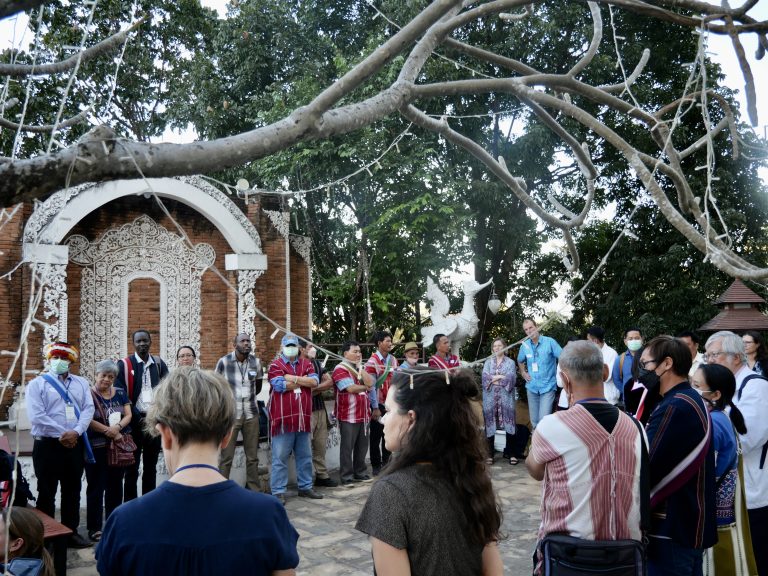
At the end of a long day of learning sessions, presentations and group work at the Transformative Pathways Annual Review and Planning Meeting, partners gathered outside to reflect on the day’s experiences. Included were community members from Thailand, indigenous representatives and staff from partners in Peru, Thailand, Philippines and Kenya, as well as staff from global supporting organizations. Chiang Mai, 2023. Photo by PASD.
Visiting local communities
Two field trips were organised by our the two Thai partners. All participants were divided into two groups, one group was led by IMPECT and went to Mae Chan Tai, and the other PASD and went to Hin Lad Nai.
Akha community in Mae Chan Tai
The first group visited Mae Chan Tai, an Akha community that has been working with IMPECT for a few years. The community is a highland one in an area of reserved forest with tight restrictions on the expansion of agricultural lands. The community members in Mae Chan Tai grow coffee as their main income crop (tea is their second most important income crop), although both are highly inter-cropped with other tree species.
Participants learnt about the community income generation system, where each household grows, dries and prepares their own coffee under their own labels, and also contribute to a central community label. Over 40 households are now involved in the coffee growing, drying, roasting and sale. The community has its own drying and roasting machines, which are maintained by community members who have been trained. One of the village leaders has also recently been elected into the Tambon Administrative Organisation (TAO), the lowest level of local government administration, and will be using this position to increase awareness within surrounding Thai communities of the environmentally positive management practices of the Akha, including their tree cropping systems.
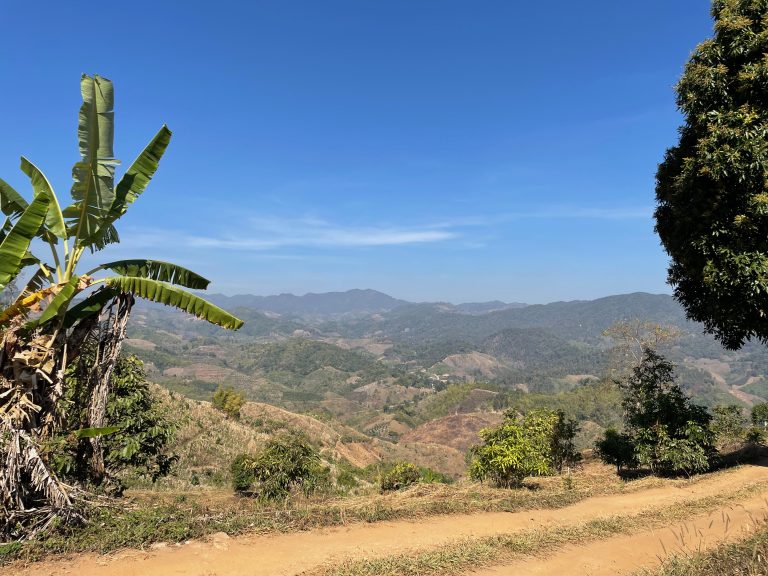
The community leaders also shared their work towards environmentally and economically stable practices, which for this community in its current location changed from the agricultural practice of growing opium as the main economic crop combined with kitchen gardens, through a period of monocropping (about 30 years ago) after opium-replacement initiatives had stopped opium cultivation. The mono-cropping of rice and corn had led to deforestation increasing and a subsequent increase in forest fires, and 20 years ago a watershed management network was established between communities to address these fires.
Changing away from monocropping and towards integrated tree cropping was part of the response to the fires, which the community continue to monitor and reduce. The community also shared the ceremonial and ritual importance of seasons and crops for the Akha, including the annual swing ceremony (lor ching char) where blessings are sought from the ancestral spirits for crop fertility.
Karen people in Hin Nad Lai
The second group was led by PASD and visited Hin Lad Nai community (Karen people) which has been receiving long term support from PASD with amazing results in terms of sustainable management of their natural resources as well as biodiversity restoration.
Participants were welcomed by village leaders (representatives of three generations) who told the story of their struggle for land rights, especially in relation to a government decision on relocation of communities within lands under conservation, which they (as a collective of forest peoples across the country) managed to defer.
Partners from Kenya and Peru took the opportunity to talk with the local leaders and were very keen to hear details about their story and to know how the community functions and thrives.
There was also a tour around two parts of the community territory, including bee keeping, coffee plantations and rotational farming fields, culminating in a locally-cooked meal.
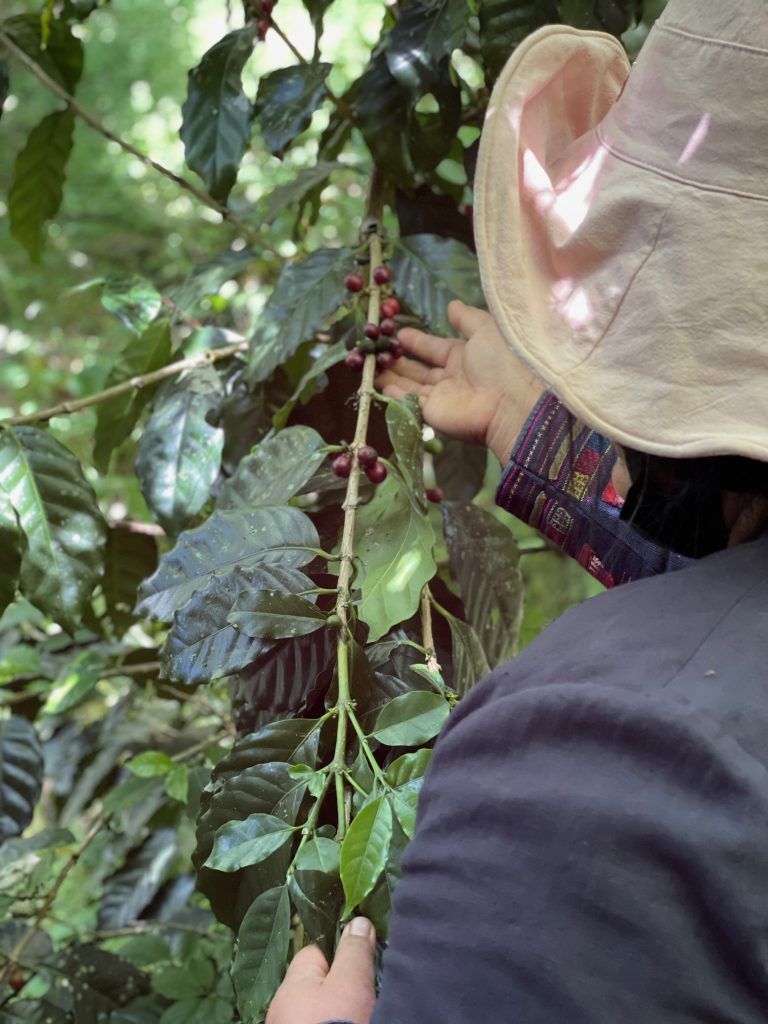
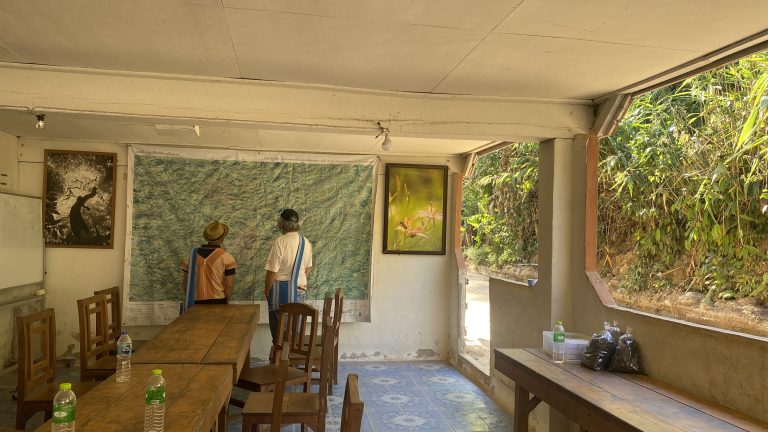
The Transformative Pathways project works in partnership with indigenous organisations to support recognising and enhancing existing capabilities and practices linked to conservation and sustainable use of biodiversity, and to support the documentation, monitoring, and evidencing of these practices for use in internal management and for external advocacy.
The project also addresses local to global links by supporting the presentation of these local practices in global policy spaces, directly by the leaders of the involved communities and organisations, to impact on decisions related to global policy on conservation and biodiversity and for local partners to use progressive text in global policy to support their national and local efforts.
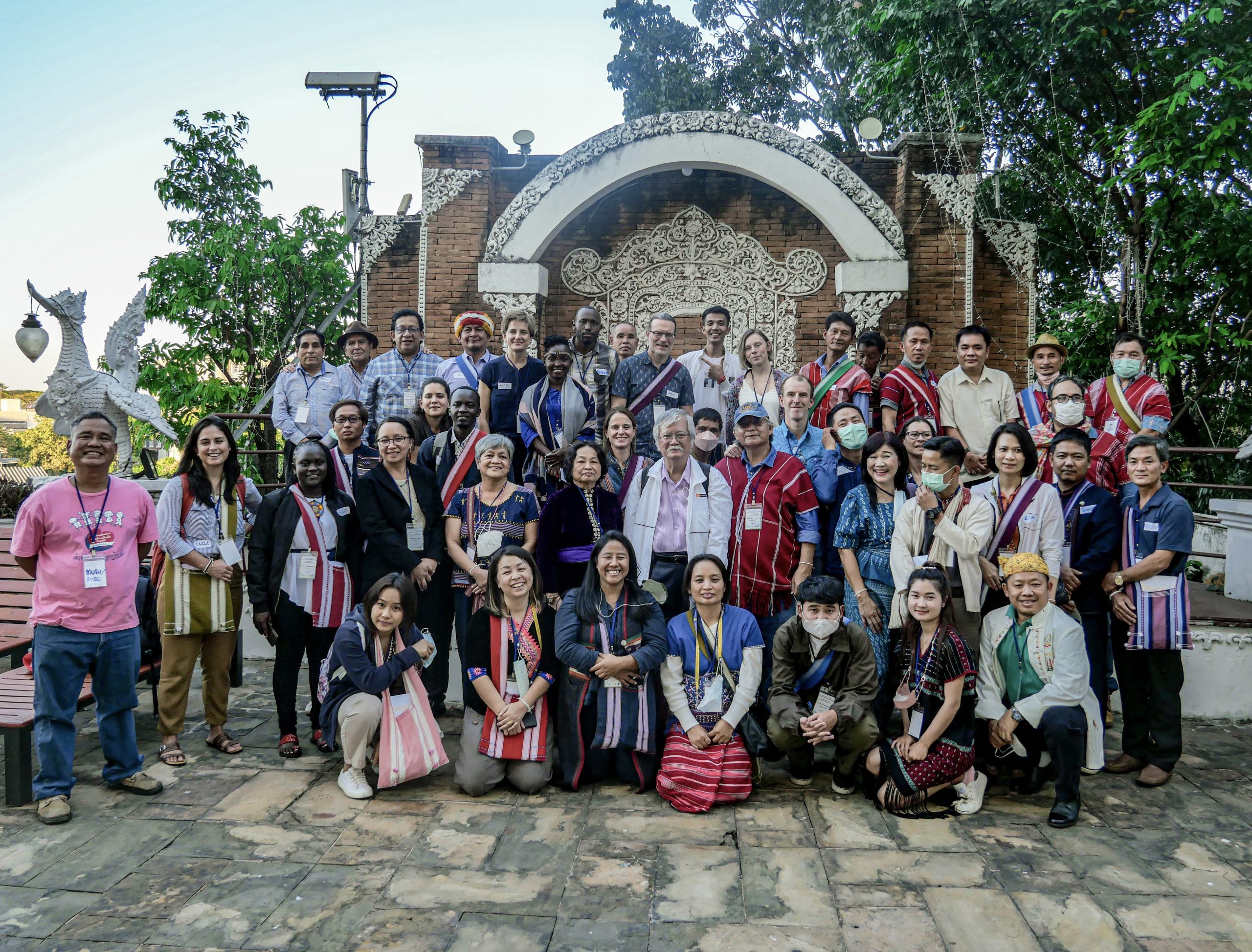
Group photo of the Transformative Pathways Annual Review and Planning Meeting, Included were community members from Thailand, indigenous representatives and staff from partners in Peru, Thailand, Philippines and Kenya, as well as staff from global supporting organizations. Chiang Mai, 2023. Photo by PASD.
